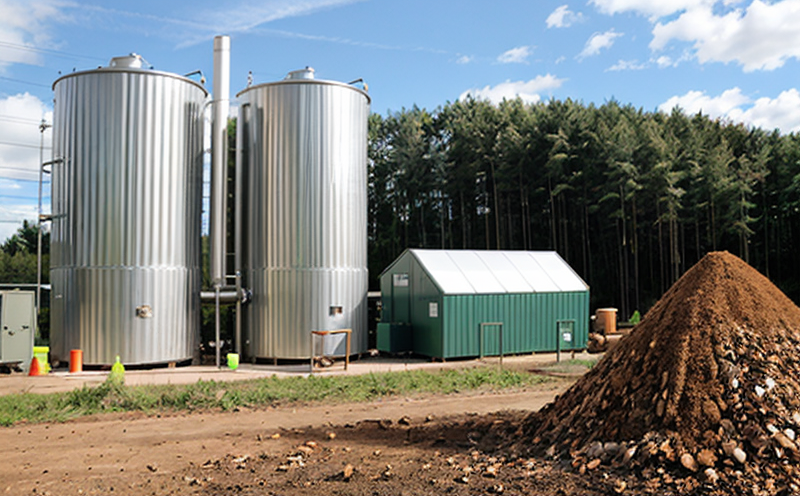ASTM E870 Biomass Sample Preparation for Energy Analysis
The ASTM E870 standard provides a comprehensive method for preparing biomass samples to accurately assess their energy content, particularly in the context of waste-to-energy conversion and biomass utilization. This service is crucial for industries involved in renewable energy production from organic materials such as wood chips, agricultural residues, and municipal solid waste. The accurate preparation of these samples ensures that energy values are reported reliably, aiding in informed decision-making for sustainable fuel production.
Before analysis, biomass samples must undergo a series of steps to ensure they represent the true characteristics of the material. These include drying, homogenization, and sub-sampling. Drying reduces moisture content to a consistent level across all samples, which is essential as moisture significantly affects calorific value measurements. Homogenization ensures that each sample is representative of the entire batch or lot, eliminating variability due to spatial distribution. Sub-sampling involves reducing large quantities of material into smaller, manageable portions suitable for detailed analysis.
The ASTM E870 protocol also specifies precision and bias requirements for different types of biomass samples. Precision refers to the closeness of repeated measurements under identical conditions; high precision ensures consistency in results over time. Bias measures how far a measured value is from the true or accepted value, indicating whether there are systematic errors in the testing process. Understanding these metrics helps laboratories maintain quality control and adhere to industry standards.
For accurate energy analysis, it's essential that the sample preparation aligns with ASTM E870 guidelines. Deviations can lead to misinterpretation of data, affecting both regulatory compliance and business operations. Compliance officers must ensure their laboratory adheres strictly to these procedures to maintain credibility and meet legal requirements.
ASTM E870 is widely recognized in the industry for its stringent quality control measures. By following this standard, laboratories can provide reliable energy content assessments that are crucial for optimizing waste-to-energy processes and ensuring compliance with environmental regulations.
Why It Matters
The accurate preparation of biomass samples is critical to several aspects of sustainable energy production:
Maintaining regulatory compliance: Ensures that all testing adheres to recognized international standards, avoiding potential legal issues and penalties.
Enhancing operational efficiency: Precise sample preparation leads to more accurate calorific value measurements, which are key for optimizing fuel blends and processes.
Improving product quality: Reliable energy content data helps in producing higher-quality fuels that meet market demands and customer expectations.
Biomass is a renewable resource with significant potential to reduce reliance on fossil fuels. However, its successful utilization requires precise measurement techniques to ensure consistent performance and environmental benefits.
Scope and Methodology
| Step | Description | Objective |
|---|---|---|
| Drying | Remove moisture content to a specified level. | Achieve consistent sample properties for accurate analysis. |
| Homogenization | Mix the material thoroughly until it is uniform. | Ensure all parts of the sample are representative of the whole batch. |
| Sub-sampling | Select a subset of the larger sample for detailed analysis. | Create manageable portions that accurately reflect the original sample's characteristics. |
The ASTM E870 standard provides precise instructions for each step, ensuring that the preparation process is standardized and reproducible. This approach minimizes variability in test results, enhancing confidence in the data generated by laboratories.
Customer Impact and Satisfaction
Enhanced trust: Reliable energy content reports contribute to greater stakeholder confidence in sustainability initiatives.
Improved decision-making: Accurate sample preparation supports better-informed choices regarding fuel blends and process optimization.
By adhering to ASTM E870, laboratories can provide consistent and accurate results, which are essential for maintaining high levels of customer satisfaction. This service not only meets regulatory requirements but also enhances the reputation of both the laboratory and its clients in the waste management sector.





